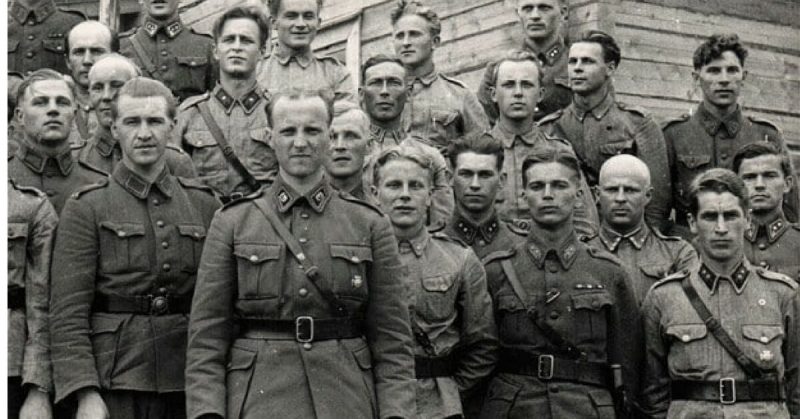During the Winter War of 1939, the Soviet Union invaded its north-western neighbor, Finland. The population stood together in self-defence. Among them were Finnish Jews, who joined the ranks with no questions asked.
Most of them were descendants of Russian Jews who lived in Finland – or Karelia, as it was called during the rule of the Russian Empire. As Finland and Russia had a long history of conflict, the Jews were considered untrustworthy due to their origin.
Finland officially declared independence from Russia in 1917, and these men found themselves in a crossfire. A civil war started immediately after the declaration of independence between Finland’s own “Reds” and “Whites” ― communists and nationalists.
The civil war ended with a close victory for the Whites but left the country divided ideologically.
Twenty years later, in 1939, Finland was invaded by the USSR. This act of aggression united the former communists and nationalists. The glue that kept it all together were the Jews. They were tired of being treated as foreigners and decided to prove themselves as real citizens of the young Finnish state.
As the country entered a conflict against a far superior enemy, their defense effort led to many casualties. Finland’s eastern provinces were occupied by the Soviets, and a fragile truce was signed. When Nazi Germany decided to invade the USSR, Finland had an opportunity to regain its lost territories.
Since the Winter War, the army was in full action. As the Finns joined ranks with Germans in a fight against the common enemy, nobody questioned the fact that Jews were already listed as members of the Finnish Army.
The involvement of Jews in operations of the Finnish army did not come without moral questioning. Most of the Jews knew something about the infamous Kristallnacht and were familiar with German racial policies.
Due to clever and decisive action by the Finnish statesmen, the racial laws were never implemented in Finland. Thus, the Jews who served in the army were never subjected to official discrimination.
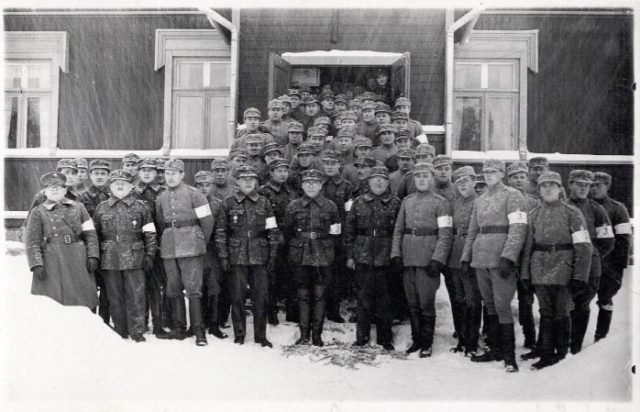
One of the most prominent Jewish soldiers of the Finnish Army, Leo Skurnik, was recommended for an Iron Cross. Major Skurnik, a district medical officer in the Finish Army, was in charge of an evacuation of a German field hospital while it was under Soviet artillery fire. More than 600 patients, among them SS soldiers, were evacuated.![]()
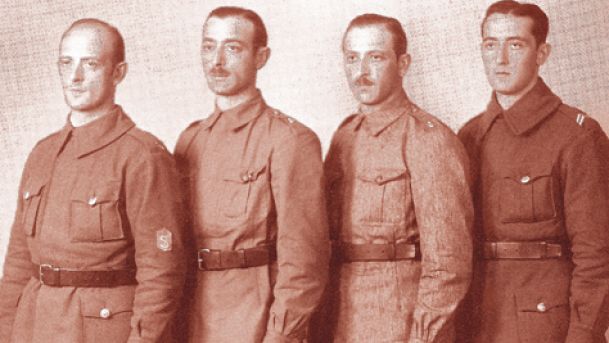
Another Jewish soldier was also recommended for this high military honor, Salomon Klass. He led a squad of Finnish soldiers who rescued a German company surrounded by Soviets. This courageous effort landed him a job in an office with the Finnish General, Hjalmar Siilasvuo, and representatives of the Wehrmacht.
The General was fully aware of Klass’ ancestry and explained to the Germans he was one of his “best company commanders.” The Germans had to accept the fact their men were indeed saved by a Jew.
The last Finnish-Jewish recommendation for the Iron Cross was a woman ― Dina Poljakoff. She worked tirelessly as a nurse and tended the wounded. Despite the fact it was strictly forbidden for a non-Aryan woman to nurse German soldiers, she was loved and respected by many wounded and dying men.
All three knew what this award meant. The valor exhibited by these individuals was not for the glory of the Third Reich. It was an act of humanity, of which the Germans had almost forgotten in those years.
All three refused to receive the Iron Cross.
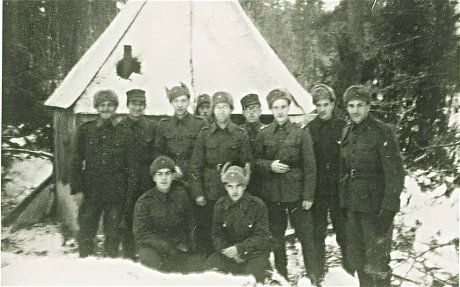
Despite the turmoil, a unique situation was created in Finland.
There is a story of a field synagogue that was erected near the frontline. During prayers, many Germans approached peacefully and attended the service.
This story was confirmed by the son of the man who founded the frontline synagogue. Rony Smolar, the son of Isak Smolar, stated in a conference held in 2008 in the United States: “German soldiers in their uniforms sat shoulder to shoulder with praying Jewish men. The Jewish worshippers noticed that some of the Germans even showed a certain respect for the Jewish service.”
Nevertheless, the dynamics between German and Finnish soldiers often caused sparks due to the Jewish men who served among their ranks. Men often hid their identity, as it was difficult to see SS men fight side by side with Jews.
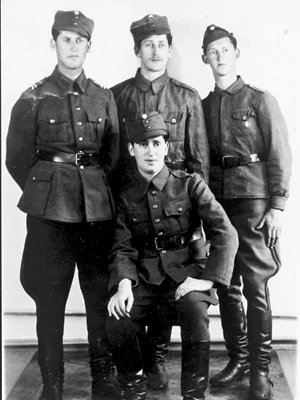
One one occasion a Jewish military doctor refused to operate on Germans. On several other occasions, the Finnish Jews refused to salute German officers.
This confusing situation was never fully explored after the war, but rather put aside.
In 1948, 28 Finnish-Jewish veterans joined the fight in Israel, in a war that followed the creation of the Jewish state. These men were partly responsible for preventing the Nazis implementing their racial laws and conducting the Final Solution in Finland.
Even today, these veterans are often seen as collaborators. Kent Nadbornik, the chairman of the Finnish Jewish Veterans Guild denies such accusations, deeming the situation far from black and white:“We did not help the Germans. We had a common enemy which was the Russians and that was it.”
These men were accused of helping Hitler’s war machine, but on the other hand, their effort did save many Jewish lives. The dilemma remains as controversial as ever. The case of Finnish Jews who fought for Hitler is yet to be fully investigated.
